
World
15:30, 17-Dec-2017
Cuba faces economic uncertainty amid Venezuela struggles
Bertram Niles
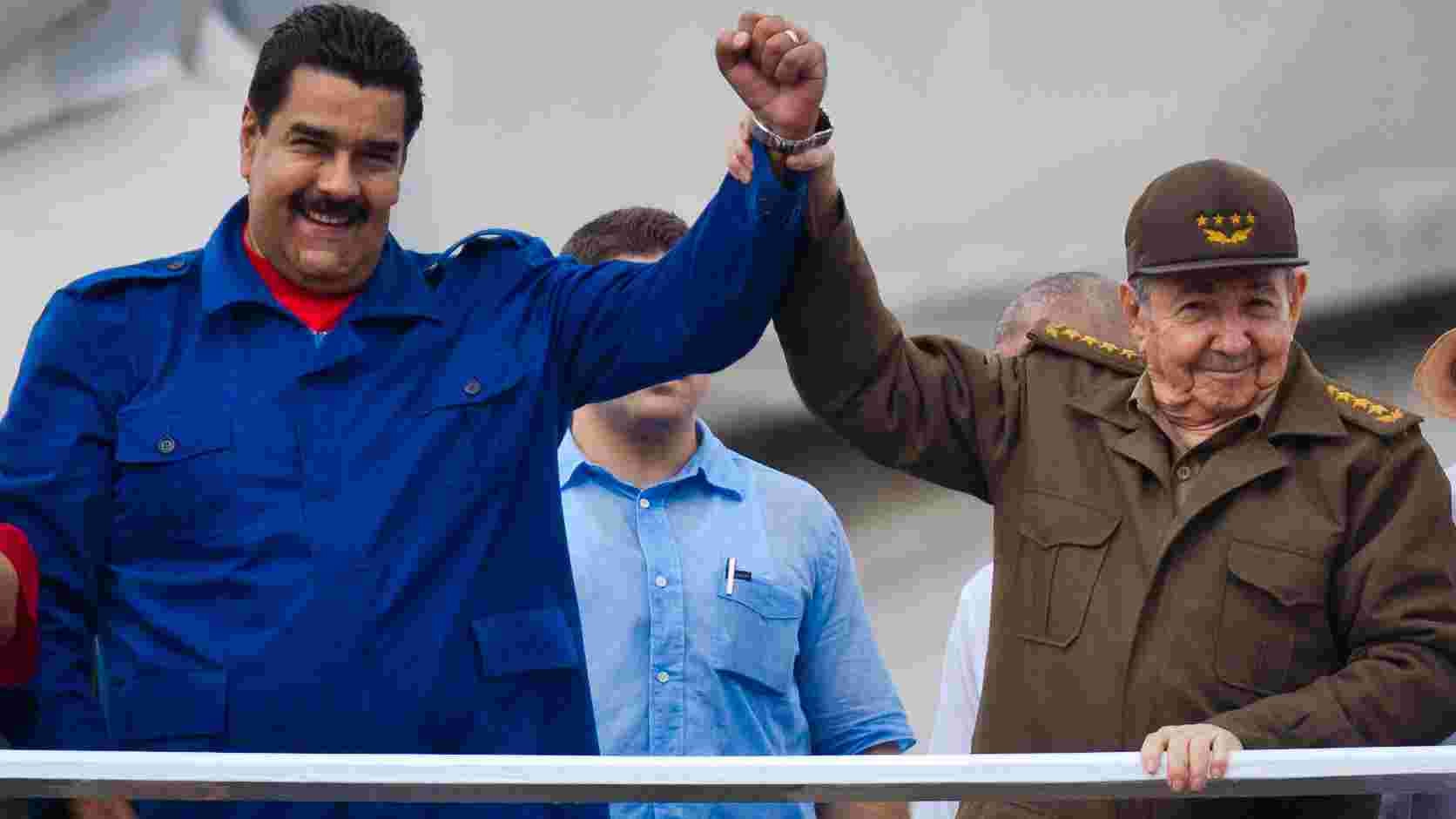
The news in mid-December that Cuba had taken full control of an oil refinery that it co-owned with Venezuela is further evidence that economic and political problems in the energy-rich nation are having a profound impact on its closest ally.
Venezuela’s chronic cash shortage and low oil prices have been harming its ability to help its Latin American and Caribbean soulmate.
At the beginning of the century, the late Venezuelan and Cuban presidents, Hugo Chavez and Fidel Castro, forged an alliance that resulted in Cuba importing all its oil from Venezuela on preferential terms in exchange for medical and other professional services.
Under the agreement, Cuba also began sending pharmaceuticals and other products to Venezuela.
The deal was a godsend for Cuba, which had suffered the loss of huge subsidies after the collapse of the Soviet Union. Very quickly Venezuela became Cuba's top trade partner, as the oil was factored in as merchandise in trade reports.
But all that has changed as Venezuela's troubles have led to an astonishing 70 percent drop in trade between the two nations since 2014 due to the oil producer’s inability to meet delivery contracts and purchase goods.
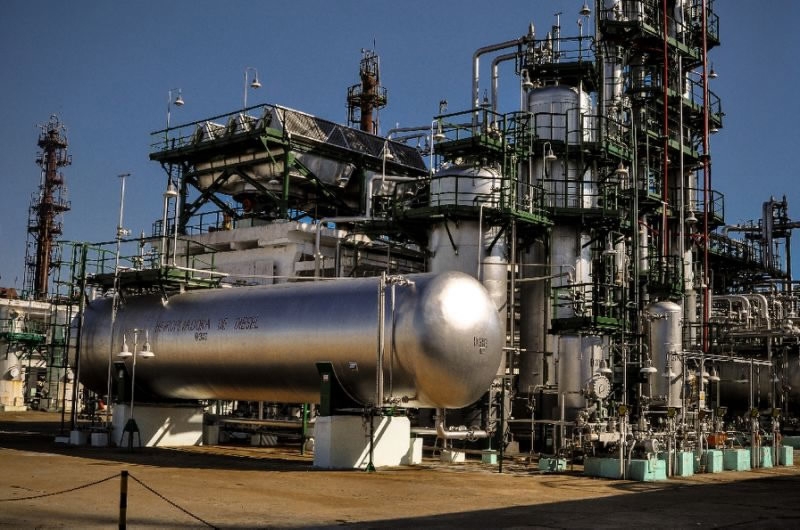
The Cienfuegos oil refinery, 250 km southeast of Havana. /AFP File Photo
The Cienfuegos oil refinery, 250 km southeast of Havana. /AFP File Photo
In fact, China overtook Venezuela last year as Cuba's largest trading partner on the back of exports of cars and electrical equipment.
Officially, the story of the Cienfuegos refinery in central Cuba is that Venezuela sold its stake to its partner in the joint venture, although no formal reason has been advanced publicly for the transaction.
Venezuela’s state oil company PDVSA held 49 percent in the refinery, and according to a former government official cited by Reuters, Cuba took over the stake as payment for debts that had been incurred from tanker rentals and professional services.
Cienfuegos, a Soviet-era refinery recommissioned in December 2007 by Chavez and current Cuban president Raul Castro, produces fuels for the Cuban market, which relies on Venezuelan crude oil to satisfy more than two-thirds of its fuel demand.
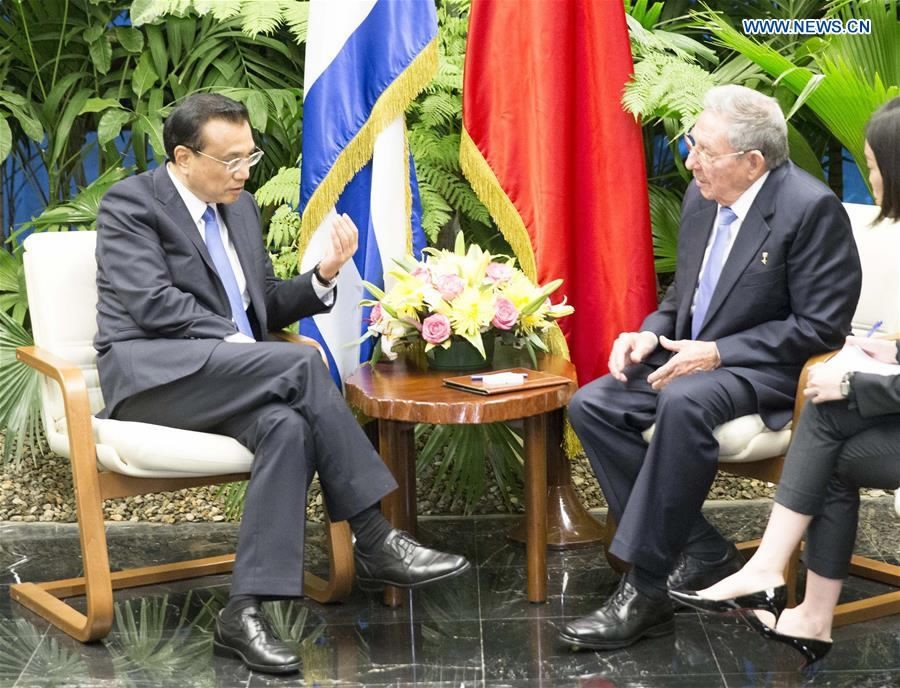
Chinese Premier Li Keqiang (L) in conversation with Cuban President Raul Castro at the Palace of the Revolution in Havana on Sept. 24, 2016. /Xinhua photo
Chinese Premier Li Keqiang (L) in conversation with Cuban President Raul Castro at the Palace of the Revolution in Havana on Sept. 24, 2016. /Xinhua photo
The refinery used to receive up to 100,000 barrels of oil a day from Venezuela but has lately been handling substantially less.
“Since August 2017, the Cienfuegos refinery has been operating as a fully Cuban state entity,” Granma, the official mouthpiece of the ruling Communist Party, said.
The sharp drop in oil shipments in the last year forced Cuba to buy more fuel at full price on the international market and to look elsewhere for crude.
Earlier this year, Cuba received a crude delivery from Russia’s Rosneft and the company has reportedly indicated that it is willing to expand its cooperation with the island.
The fall in oil imports led to merchandise trade with Venezuela falling to 2.2 billion US dollars in 2016, compared with 4.2 billion dollars the year before, and 7.3 billion dollars in 2014, the Cuban National Statistics Office said in August.
China moved above Venezuela although trading value with the world’s second largest economy last year remained almost unchanged from the previous year at 2.58 billion US dollars.
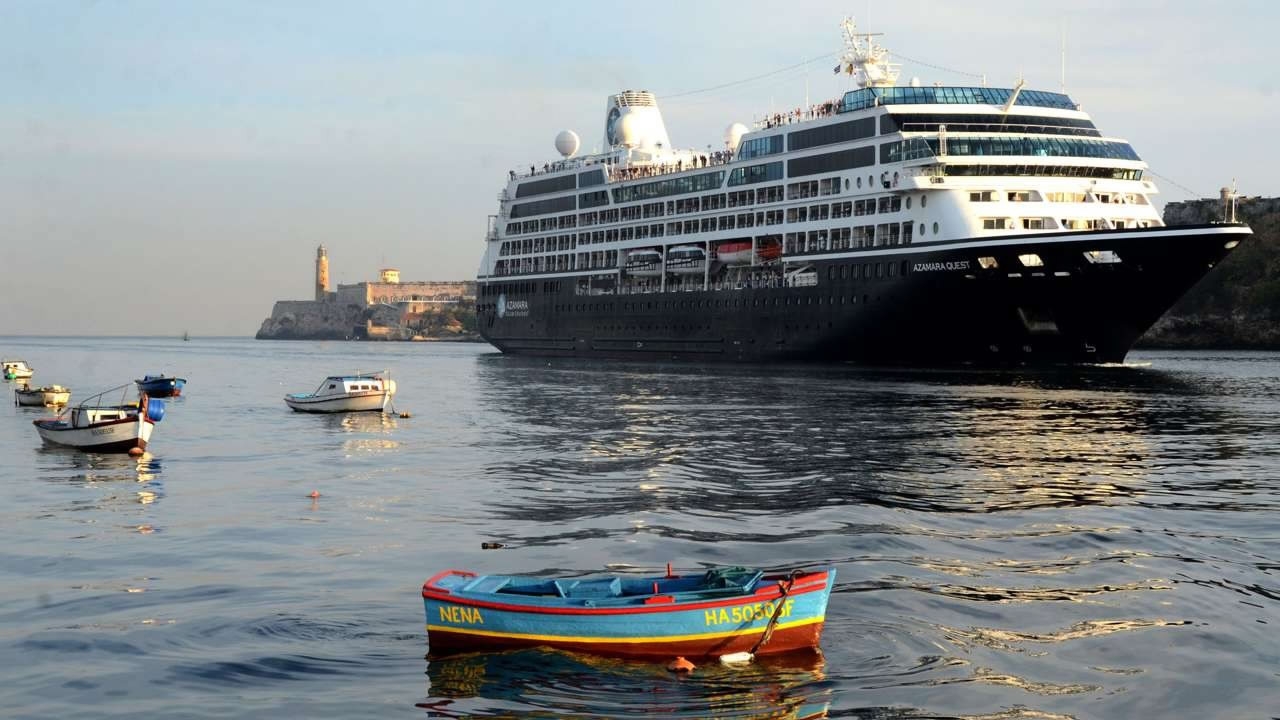
Royal Caribbean’s cruise ship “Azamara Quest” docked at Havana’s harbor earlier this year. Cuba’s tourism has boomed, but revenues overall have dropped. /Xinhua Photo
Royal Caribbean’s cruise ship “Azamara Quest” docked at Havana’s harbor earlier this year. Cuba’s tourism has boomed, but revenues overall have dropped. /Xinhua Photo
Much of this is reflected in Chinese coaches and passenger cars in Cuba, as well as industrial equipment.
China is seen by some analysts as an investment partner that could help ease the pain for Cuba given the situation in Venezuela and the decision of US President Donald Trump to tighten the economic embargo on the island nation after his predecessor, Barack Obama, had moved to normalize relations.
In late October, China and Cuba signed five cooperation and legal agreements, which officials said reaffirm the willingness of both nations to strengthen and expand their economic and trade relations.
They also formalized a new credit line granted by China to remodel and modernize Cuba's electronic industry.
China already has extensive cooperation agreements with nations in the Caribbean which have looked increasingly toward the Asian giant for an economic lifeline.
The Chinese are constructing a container terminal in Cuba's eastern city of Santiago de Cuba, backed by a 120-million-US-dollar Chinese development loan, and Beijing Enterprises Holdings Ltd signed a memorandum of understanding with the Cuban government last year for Bellomonte, a golf-hotel-condo project just outside Havana.
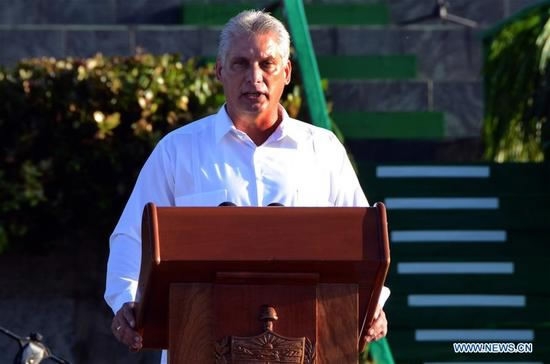
Cuban First Vice President Miguel Diaz-Canel is tipped to replace Raul Castro who has said he will retire in February. /Xinhua Photo
Cuban First Vice President Miguel Diaz-Canel is tipped to replace Raul Castro who has said he will retire in February. /Xinhua Photo
Cuba was forced into austerity in 2016, cutting back on such things as public lighting and bus services, as it struggled to pay its bills. More tough medicine is expected as the Venezuela impact continues to bite.
In July, the economy minister Ricardo Cabrisas said imports in 2017 would decline again and be 1.5 billion US dollars less than planned “due to difficulties in using credits, limits assigning liquidity and debts on expired letters of credit that have not been paid.”
What’s more, despite considerable growth in tourism, Cuba’s revenues from services, including medical ones, have been falling since 2013, reports the Economist.
The outlook for the country could not be more downbeat as 86-year-old Raul Castro prepares to step down in February and end almost six decades of rule by the Castros.

SITEMAP
Copyright © 2018 CGTN. Beijing ICP prepared NO.16065310-3
Copyright © 2018 CGTN. Beijing ICP prepared NO.16065310-3